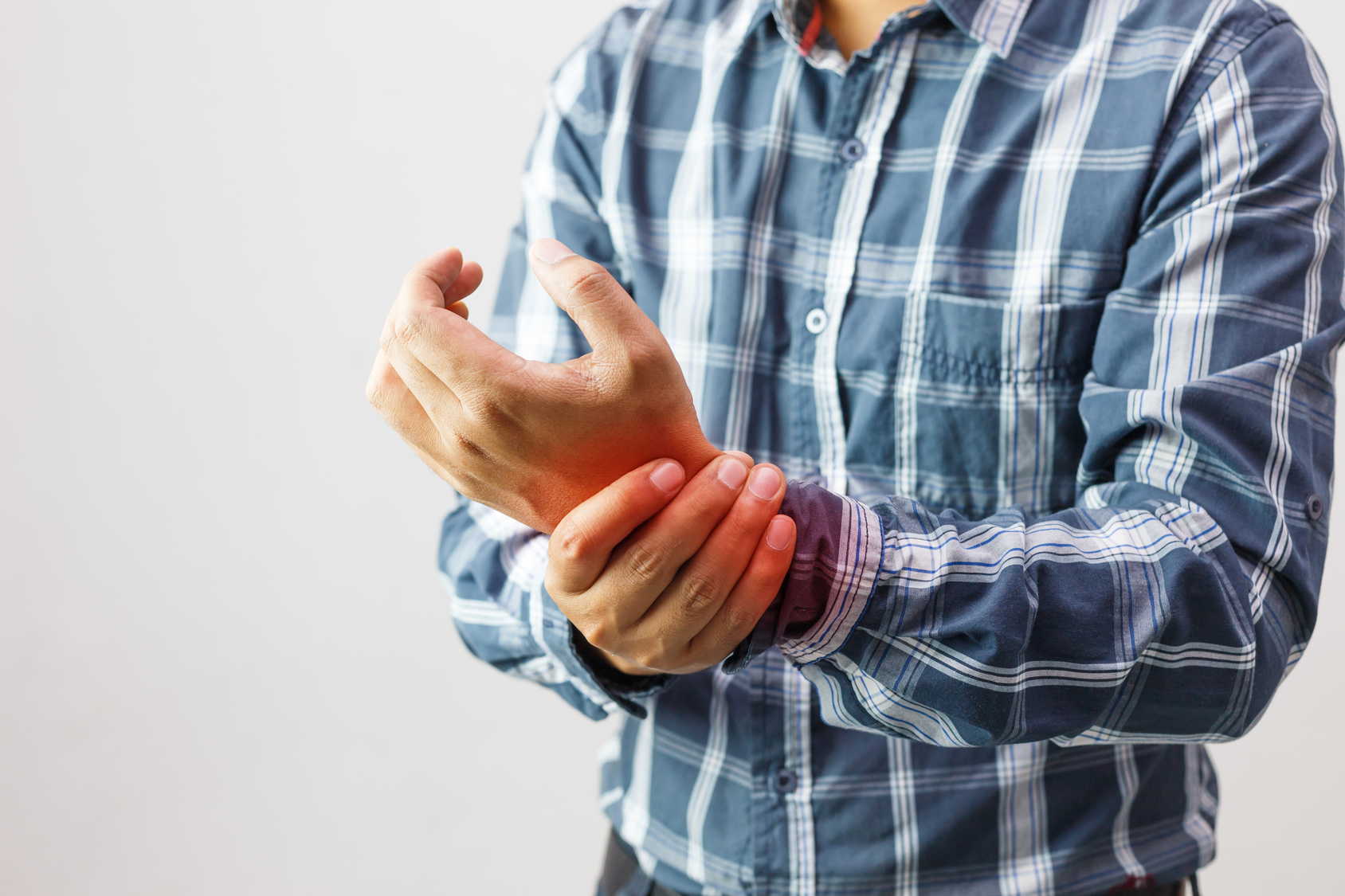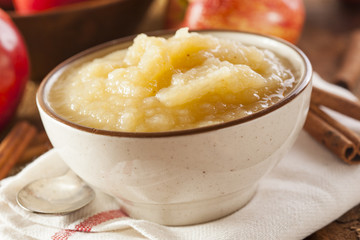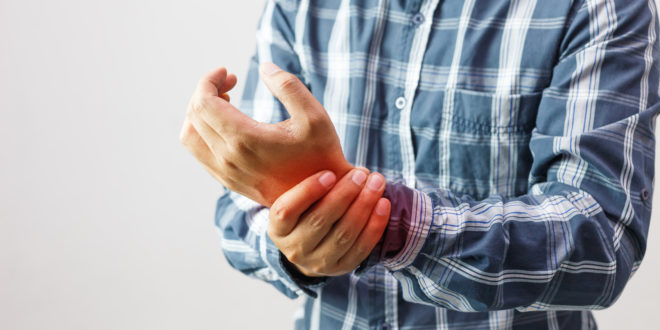Gout is an inflammatory joint disease and a form of arthritis, caused by a buildup of uric acid in the blood.
Uric acid is produced when the body processes waste substances, called purines. Usually, it is dissolved in the blood, processed by the kidneys, and passed out of the body in the urine.
But in some people produce too much uric acid and it may crystallize and collect in the joint spaces, causing gout.
A gout attack usually lasts several days and is intensely painful. It often attacks the big toe, but may also develop in the ankles, heels, knees, wrists, fingers, and elbows.
Who gets gout?
Though anyone can get gout, it primarily affects men. Risk factors include:
 Age – men in their 40s and 50s are at greatest risk.
Age – men in their 40s and 50s are at greatest risk.
- Family history of gout
- Being overweight – over-eating increases the production of uric acid.
- Eating too many high-purine foods (see below)
- An enzyme defect that prevents the breakdown of uric acid.
- Heavy alcohol use.
- Exposure to environmental lead.
Natural ways to prevent gout or help an attack
Maintain a healthy body weight. All bodies are under the least stress at a healthy weight.
Drink eight glasses of water a day to help your body flush uric acid and prevent kidney stones from forming.
Moderate your alcohol intake and check your diet. Like alcohol, certain types of meat (specifically organ meats such as liver, brain, kidney, and sweetbreads) and fish (particularly anchovies, herring, and mackerel) contain large amounts of purines, chemicals that break down and form uric acid.
Avoid nonprescription diuretics. They slow down the excretion of uric acid, which builds up in the blood and increases the risk of gout. If you have been prescribed a diuretic for another condition, such as high blood pressure, be sure the doctor knows that you have a tendency toward attacks of gout.
Dealing with a gout flare-up
Gout can be brutally painful, but it rarely life threatening.
However, gout requires proper diagnosis and treatment by a doctor.
Don’t put any weight on the affected joint, keep it elevated and immobilised, and avoid any added heat or cold.
Herbs can fight inflammation and cleanse toxins from the joints. Devil’s claw root, ginger root, meadowsweet leaves and flower tops, and white willow bark all act as anti-inflammatory agents that can relieve pain. Other helpful herbs include boswellia (frankincense), capsicum (cayenne), feverfew, and liquorice.
Help in your pantry
 Stewed apples may help neutralise the acid that causes gout.
Stewed apples may help neutralise the acid that causes gout.
Cherries help remove toxins from the body and clean the kidneys. Seek out cherry compote, cherry juice or cherry jam, and add it to your daily menu.
Mix 25g chicory root to 600ml boiling water, and take as much of it as you want. This can work as a poultice, too, when it is applied to the skin in the area affected by gout.
Make a mustard plaster and apply to the achy joint. Mix 1 part mustard powder (or crushed mustard seeds) to 1 part flour and add enough water to form a thick paste. Slather petroleum jelly on the affected area. Spread a thick coat of mustard paste on a piece of gauze or cloth, then apply over the greased-up area. Tape down and leave in place for several hours or overnight.
Make a thyme tea – add 1 to 2 teaspoons to a cup of boiling water. Sweeten, and drink.









judi001 - 7 years ago
the abeeco gout formula helps a lot